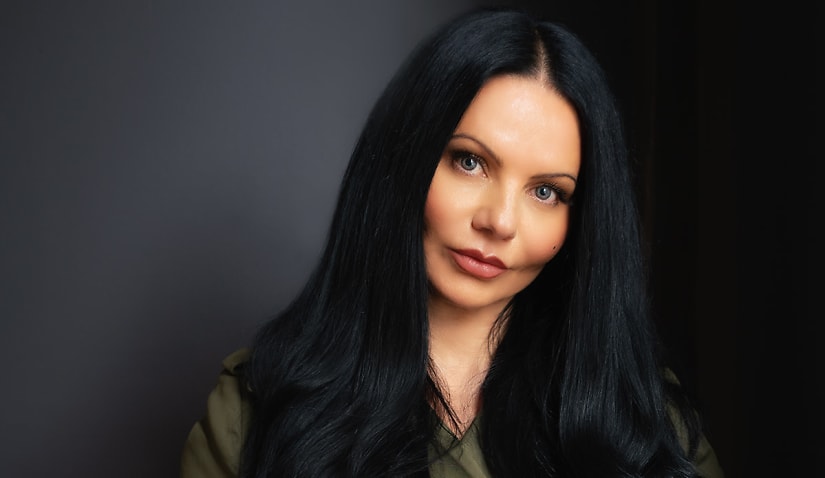Vicarious trauma and mental health in the legal profession should be able to be openly and honestly discussed in workplaces, argued this wellness advocate.

Content warning: This story contains insights that may be disturbing or distressing to some readers. Discretion is advised.
Speaking recently on The Boutique Lawyer Show, Ms Kozarov revealed why she’s raising awareness on vicarious trauma in the workplace and why it’s so important to reduce the stigma of mental health within the legal profession.
Ms Kozarov has recently come off a decade-long High Court trial, which eventuated in the court determining that she was owed a duty of care from her employer, the Office of Public Prosecutions, in relation to the vicarious trauma she was exposed to, and that better protective processes should have been put in place.
She now advocates for employers to put in better protections for employees in the workplace — and said this passion extends to all the areas of work she does.
“In particular, with defence work, I often look at the background of my clients and what has perhaps made them behave the way that they behave. Issues like drugs, illicit substance abuse and the effects of that leads to offending behaviour. I also am fascinated by our society and how there’s a stigma when it comes to drug users. I do represent an array of different people in my criminal defence work with family law. So, I practice in the area of family law. I am fascinated by the effects of family law on males in our society, things like intervention orders and how they affect parenting. Parenting orders and having the ability to spend time with children,” she said.
“I do enjoy advocacy on both ends, so family law and in criminal law. I try to do as much advocacy as I can, and when I can’t, I obviously brief matters out. Or if I’ve got more than one in a day, I’ll brief them out, or my junior will take on matters. But they’re the areas that I’m fascinated by.”
In addition to advocacy work within her practice, Ms Kozarov also endeavours to support lawyers who may be experiencing, or have experienced, vicarious trauma.
“I’m pretty well known in the criminal field, and I do have young lawyers approach me about different things, and I do speak to them. With my own practice, I speak very openly to my staff, and we discuss different ways of dealing with matters. But I’d like to think that my staff can come to me and approach me about all different areas, and if something’s affecting them that they should feel very comfortable in telling me, and I think I would have an understanding,” she said.
“It’s actually quite fascinating; since the trial, I’ve had people approach me from all different areas. I get emails, I get calls, and people often ask me for direction as to how I coped with PTSD, for example. I’m mindful to answer everyone that approaches me. I’ve had firefighters, psychologists, others in the medical profession, [and] social workers. People that work in medicine, such as nurses and doctors, have approached me about certain issues that I was confronted with and they could relate to it.”
To look after herself when she needs to disconnect from her work, Ms Kozarvov goes for walks and practices self-care — and said that post-pandemic, the messaging around wellness is already changing and becoming more digital.
“There’s been some drastic changes already that I can see. I think, especially now, post-pandemic, there are people working from home. I think there’s more flexibility. We, as a society, have come a long way. We have shown that we can, for example, make things work. Even if we are not physically in the workplace, things can continue, and I think that’s an important message. So, there’s been massive changes, and I think they will continue, absolutely, because [mental health] stigma is slowly dissipating. And with more people talking about it openly, I think it will just get better and better as time goes by,” she added.
“[My advice] would be don’t be afraid to speak up if there’s something that’s not going right in the workplace for you. And if it’s affecting you psychologically, to not feel embarrassed or shame about utilising external agencies, such as psychologists or counsellors. I think it’s important to talk to your peers about how you might be feeling. There’s no shame in discussing your psychological wellbeing. Our profession’s stressful enough as it is, and I think it’s imperative that we all break down that stigma and make it a norm to talk about the pressures associated with being in a profession such as law.”
Help is available via Lifeline on 13 11 14 and Beyond Blue at 1300 22 4636. Each law society and bar association also has further contacts available on their respective websites.
The transcript of this podcast episode was slightly edited for publishing purposes. To listen to the full conversation with Zagi Kozarov, click below:

Lauren is the commercial content writer within Momentum Media’s professional services suite, including Lawyers Weekly, Accountants Daily and HR Leader, focusing primarily on commercial and client content, features and ebooks. Prior to joining Lawyers Weekly, she worked as a trade journalist for media and travel industry publications. Born in England, Lauren enjoys trying new bars and restaurants, attending music festivals and travelling.